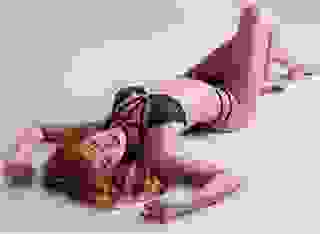- Romance
- My Sister's Love
Note: You can change font size, font face, and turn on dark mode by clicking the "A" icon tab in the Story Info Box.
You can temporarily switch back to a Classic Literotica® experience during our ongoing public Beta testing. Please consider leaving feedback on issues you experience or suggest improvements.
Click hereAuthor's Note:
This early 20th-century romance is a work of fiction. Any semblance of any character to any person, living or deceased, is entirely coincidental. I've tried to make sure that words used are generally appropriate for the period, but if any modern words have slipped through, I apologize in advance.
This story focuses more on the characters than the eroticism, though that, too, comes into play as the story progresses after a long build-up. Still, if you're looking for encounters described in graphic detail, please look elsewhere.
For those who read on, please let me know your thoughts with your votes, favorites, and comments. Thanks!
_________________________________
Prologue
When I was small, my big sister was my best friend and my protector. She always loved me, and despite my occasional jealousy and some little tiffs between us over time, I always loved her, too.
Mary was almost six years older than me and helped out much of the time with my care, so I considered her "Little Ma" until I was old enough to really understand. "Ma," our real mother, the daughter of Irish immigrants who'd arrived on these shores only months before her birth, spent much of her time making dresses for women in our tenement building when she wasn't cooking or cleaning, so Mary would drag me along on her adventures around our little apartment or up on the roof to play, and, as we both grew, we eventually made our way through the crowded streets of Philadelphia, our home town. Later, we ranged far and wide, from Fishtown to Fairmount Park, from North Philly to as far south as Downtown, with Independence Hall and the Liberty Bell.
"Mary, why would anyone want a bell with a big ugly crack in it?"
Mary loved me dearly, but, though she never admitted it, I'm sure she resented my constant silly questions, my dogged tenacity in chasing after or tracking her down at times when she wanted a few minutes of what might be considered quiet in our bustling city, and my incessant eavesdropping as I tried to overhear her conversations with Ma. Our mother said I was a precocious child, very advanced for my age, so I was always getting into things, causing my sister trouble to no end. If I'd been Mary, I'd have been screaming, "Clara! Stop it!" or "Leave me alone!" much of the time. Fortunately, Mary was Mary and I wasn't, so she didn't yell at me until I was much older and almost as big as she was.
When I was born in May 1903, we lived on the fifth floor of a six-story tenement building between the rail yards and the big Stetson hat factory, but shortly after I turned 9, Pa was promoted at the hat factory and we were able to move to a real house of our own. Ma could make prettier, more expensive dresses for our new neighbors, too, but I lost all of my friends from our building as a result and didn't have a roof to play on anymore. Our new neighborhood was nicer and quieter, but there weren't many kids so I didn't make many new friends at first.
The exception was Billy Briggs, the boy from two doors down, who sometimes played with Mary and me. He was 13 and seemed to have a pash on Mary, who was two years his elder, but she largely ignored him, leaving him to play ball and talk with me until I started school that fall. I liked my new school much better; there were new friends and I learned a lot more, with Sister Jana Katherine, the headmistress, challenging me and quickly moving me up levels in subjects as a result. Since Billy went to a different school, I didn't see him as often after that, but that didn't concern me since I quickly became one of the sister's star pupils.
Mary went to a different school and to a training school a couple of years later to become a nurse. When America entered the Great War in April 1917, the army people said Pa was too important making campaign hats for the soldiers, so he couldn't go to France, but Mary signed up as a nurse when she finished her coursework a few weeks later. The army men didn't want her to go to France either, though.
Instead, her first letter told us they'd shipped her off to England to help with the "long-term" wounded. Ma and Pa were glad, saying she was far from the fighting so we didn't have to worry about her, but they were just saying that so I wouldn't worry. I knew because I often sat on the stairs late at night listening to their conversations downstairs when I was supposed to be in bed asleep. Therefore, they worried together, and I worried about and prayed for her in silence, asking God to bring her home safely to me.
Maybe God heard my prayers for Mary stayed safe, but when the fighting stopped in November 1918, she didn't get to come home for a while. That was probably fortunate for her and for us since Philadelphia was hit hard by the Spanish Flu epidemic that crashed down upon us following the Liberty Loan Parade in late September. As many as 4,500 people died in the first ten days after the parade, said to be the deadliest in American history, and during the next six months, hundreds of thousands of people contracted the illness with over 15,000 dying. As a nurse, Mary would almost certainly have gotten it and probably brought it home to us.
Instead, she was very busy in a place called Hertfordshire north of London, taking care of the wounded soldiers who were convalescing in some ancient mansion they'd converted into a hospital. The flu didn't get too bad there; Mary said they had patients for weeks or even months at a time so they didn't see as many people coming in and out like a lot of hospitals where people were dying right and left. By the time it was mostly over in late 1919, approximately 50 million people worldwide had died.
Mary sent letters when she could, and I'd read them over and over. In hindsight, I was reading what she wrote rather than what she meant. She'd first mentioned a Captain Walsh, one of her patients who'd gotten an award for bravery and had the wounds to prove it, in late October 1918, but I wasn't interested in her patients (or perhaps I should say, patient, since he was the only one she ever mentioned), so I generally skimmed over that part of her letters. It went on like that for a while and I didn't give her captain a second thought until one letter we received just days before my 16th birthday in May 1919. She said Captain Walsh had recovered and been sent home and that she missed him very much. It was then that a light went on in my mind.
"Ma? Do you think it's possible Mary likes this Captain Walsh?"
Ma looked at me, shaking her head in disbelief, as she tried to keep from laughing. "Clara O'Grady, I declare, you don't have a romantic bone in your body! She's been head over heels for the poor man for months."
Rushing upstairs, I reread her stack of letters and could see it then, probably written in careful terms to avoid getting in trouble for fraternizing with her patients, one of the big prohibitions of her job. With her letters possibly being read by the army censors, she couldn't admit anything until after he was gone. I snuck back to the top of the stairs that evening to overhear Ma telling Pa about my discovery but had to smile when he admitted to having missed it too.
Her next three letters, received about a week apart, were mostly about missing him with a postscript on the last one that they were shutting her hospital down and that she'd be home soon.
I felt just a little bad for her about losing her captain, but I didn't give it much thought since I knew she really didn't care about boys anyway. I was more excited about having her home with me. Oh! How I looked forward to seeing my big sister!
***
Chapter 1
Mary arrived on June 1st, just a few days after that final letter and almost three weeks after I turned 16. Ma and I had just enough time to make sure the house (which, in my opinion, was already quite clean enough) was spotless before she arrived. My hands and knees ached, but I gave her a big hug and a kiss when she arrived, and marveled as we held each other at how much smaller she was than I remembered.
Mary and I spent a lot of time together over the next two weeks, with me finally being the bigger, taller sister. Being a late bloomer, I'd started getting the last few inches of my height, my bosoms, and my monthlies shortly before she left for Europe, and now I had two inches and a good 8 to 10 pounds on her. I was saddled with freckles, my eyes were boring, green like grass, and my hair was longer, straighter, and blonder, while she had the beautiful alabaster skin, blue eyes, and strawberry tinge to her curly hair that I so wanted. I would like to say that she was the more beautiful sister, but that would imply some degree of beauty on my part, which would be a grievous insult to actual beauties everywhere.
It didn't take long to learn that Mary was much different than I remembered her from two years before. Whereas we'd always gone to Mass together and she'd never cared about boys, now it was reversed. She wasn't interested in going to Mass with me (though I still dragged her along) for all she cared about was her stupid Captain Walsh. I didn't know him but I knew I couldn't stand him because he'd messed up her mind so badly. Instead of being my big sister of former days, she was a little touched in the head, so I decided to help her one afternoon.
"Mary, he's not here so why don't you forget your Captain Wash? We could go get ice cream—"
"It's Walsh, Clara, and no, I'm not going to forget him!"
"But Mary! He's a boy! You've never cared anything about boys," I declared, thinking of our times together before she'd left for the war when she'd shunned them as much as I had and still did.
"Hmmm. I guess you're partly right. I never cared about boys, but Captain Walsh is a man, and I miss him and care about him," she replied, her eyes flashing at me. "You'll grow up and recognize the difference someday, and then you'll understand."
"Phfff! I doubt it. Boys? Men? Who cares! I just want things back the way they used to be."
Mary shook her head as she gave me a compassionate look. "Things change, Clara; we have more experiences every day, so our perceptions are influenced by those. Sometimes it's a little, sometimes a lot, but most things don't stay the same forever. You'll understand that someday, too."
I sighed, seeing that I wasn't going to change her mind. Unless...
"Maybe," I admitted before playing my trump card as we turned the corner and I spied the shop about a block away. "But ice cream doesn't change; it's always good and always will be."
Mary smiled before nodding. "True...but your favorite flavor may change over time."
"Not mine! I love vanilla!"
"I used to," she said, "but now I like chocolate. Maybe we should test it on you. Race you. Last one there buys!"
Mary's statement and the way she took off surprised me, but a second later, I was chasing after her, determined to win and prove my point.
***
We came to a truce, with me still liking vanilla but admitting that her chocolate really wasn't so bad, and Mary limiting her irksome griping about missing her captain. She'd even done the nice, big-sisterly thing of beating me there by a step but holding the door open for me so I could go in first and save my precious twenty cents.
In fact, she'd done so well that when another letter arrived a few days later, her excited squeal surprised me and I had to go chasing up the stairs after her to see what was happening.
"Mary! Mary! What is it?" I demanded loudly. "Let me see!"
"Go away, Clara!" she yelled back at me, running into her bedroom, slamming the door, and locking it behind her.
She never let me see the letter, but it was from her Leo, her new name for Captain Walsh. Mary stayed locked in her room until the next day, coming out only for meals or to go to the water closet. Worse still, the impudent hussy made sure to lock her door each time where I couldn't sneak in to see what she'd been doing.
It was the next afternoon when Mary came out, wearing makeup and a new dress that I hadn't seen before. I stared, for she was as beautiful as any of the actresses in the moving pictures..
"Ma! I'm going to the post office. Clara, want to walk with me?"
Her offer surprised me. Yes, I would gladly go with her, knowing full well that it would give me some time to pry her new secrets from her. "Sure, Mary, I'm coming!"
I rubbed my hands like the evil villain in that picture show, chaining the damsel in distress to the rails just as the big, black locomotive appears in the distance. I could imagine the theater organist playing the music that accompanied the film, building up a crescendo as the smoking monster bore down on her, the camera switching back and forth between the poor girl on the rails—in this case, Mary—and the ever-nearing locomotive, before finally flashing to my face, grinning at how I would disarm her.
It was all for naught. Instead of competing with her as equals, or as intellectually equal as a 16-year old can be to one just weeks shy of her 22nd birthday, I was surprised when Mary capitulated and gave me the news without putting up a fight.
"Leo wrote to me; that was the letter I received. We've been apart for a few weeks but he still loves me and wants to be with me, so this is my response."
I was flabbergasted. "Mary, all you've done since you've been home is talk about him. It took you over twenty-four hours to write 'Yes!'? What's wrong? Do you have doubts? Did you need time to think about it? Are you worried that Pa'll say no?"
She was clutching the letter to her heart with her left hand as we walked, but she reached out with her right and looped it around my arm before giving me a squeeze.
"No, little sister," she said as if explaining to a small child. "I fear your education in such matters is sadly lacking due to my only becoming interested in the romantic arts while I was away. That deprived you of what you might have learned from my often rueful experiences and my tears. The times we could've laughed and cried together over my failures in the field of romance might've been enlightening to you, to say the least, and might well have helped me, too. No, this is what romance is, when a man writes pretty things to a woman and the woman must pour out her feelings in equally flowery terms that make his efforts look weak by comparison."
I stared at her in disbelief. "Mary, why on earth would you waste time doing that?"
"And Clara's badly neglected education begins," she stated rather matter-of-factly as if to some random bystander rather than to me. Looking directly at me, she continued, "Clara, those of our fair sex—"
"Girls?"
"Women, Clara, and don't forget it—are at a disadvantage with respect to men in most pursuits. They're bigger, stronger, and, in most cases, meaner that we are, so we have to take our victories where we can. We're seen as sweet, but we can be sneaky when we have to be. We're as smart as them—even smarter in many cases," she whispered, "though they don't always realize it, which can give us a distinct advantage...if we use it wisely. And when it comes to romance, we get to choose our partner—"
I was listening to Mary drone on but that struck my attention. Women get to choose their partner unless someone else has already chosen him, and then it could get a bit messy. Mary didn't say it but I'd heard of women being downright catty when it came to competing for a man. Why anyone would want a man so much confused me.
"—course, that's IF we play our cards right. That's why this letter's so important. He has to see that I'm as interested as he is and that I'm every bit as serious without coming out and saying it."
"That seems pretty foolish to me," I said. "If you like him, tell him so you can avoid all the mushy romantic stuff."
Mary stopped on the walk and turned toward me. "That, Clara, the 'mushy romantic stuff,' is the fun part, the part that makes you catch your breath, your heart to flutter, and your—well, you'll understand that part soon enough, too. Leo wrote me a letter so I wrote him a longer reply," she said, holding it out in front of me. "He wrote me a poem, so I wrote him a sonnet. He's in Ohio—"
"Ohio? What's he doing there?"
"Clara, that's where he's from. Didn't you look at the address?"
No, all I'd seen was the fancy name: Captain Leonard Newman Walsh.
***
Following our discussion, Mary and I spent even more time together. Since I graduated from school early, I was studying to get my teaching certificate with Sister Jana Katherine's blessing, so Mary helped me with that in the mornings, frequently going through Pa's newspapers and discussing world events to try to "improve my perspective" and help me become "more mature." She didn't mean those words in a hurtful way, but they reminded me that I was her little sister rather than her peer and led to some serious gnashing of teeth on my part to avoid proving her point.
The afternoons were our special time; we'd often walk and talk, discussing life and hopes and dreams, with an occasional lesson in makeup and beauty thrown in that gave me a tiny bit of hope that I might someday look even half as good as she did.
Mary frequently seemed somewhat sad as she talked about her time in England, and one day when we stopped by the ice cream parlor, she admitted to me as she was finishing her strawberry cone that Leo was actually her second lover. The first, a young British private, had been her patient for several months when she first started working at the hospital.
"I never even got to kiss Henry," she confided. "We only held hands a few times and he quoted Byron to me as he stole my heart."
My heart was pounding as I learned of my sister's scandalous past. "What happened?" I asked between the last bites of my chocolate cone, my new favorite flavor. "Did...did he leave you?"
She was crying as she nodded. "Not for another, but for the front, after he recuperated. He promised to write and to come see me after the war was over. I received one final letter from him, but it wasn't complete. They found it on him when his body was taken from the field where he fell after he insisted on going back to his unit rather than going home. One of his friends knew to send it to me at the hospital where Henry had spent time recovering. He said Henry had done nothing but talk of me, his 'angel in white,' and his dreams for our future since he'd returned to their unit."
I hugged her as she cried, trying to give her my strength without her realizing that I was crying, too.
When she calmed herself, she said, "I swore never to get close to another patient because I couldn't lose another love. I had coffee or dinner with a young doctor and even a couple of junior officers during my leaves, but they didn't interest me compared to Henry. Then I met Captain Walsh, another patient. He tried to talk to me, every day, quoting poetry and little jingles, but I refused to say anything to him other than what was necessary for weeks and then months, knowing if I allowed myself to fall for him, he might be killed like Henry."
"Then the war ended?" I guessed and she nodded.
"That Monday, the eleventh of November, I made my first rounds of the afternoon as the patients who could celebrated the news. When I was done, I came back to him. He'd said such sweet things to me, trying to attract my attention, to make me smile, to even pry my name from me, in the months that he'd been there, but I'd resisted all, despite my heart already being aflutter for him. When I reached his side, I pulled up a chair and sat next to him. Clara, I was scared to death but I forced out the words. 'Captain Walsh, the armistice was signed a little while ago and the war is over. You won't be going back into combat when you are well. Do you still wish to speak with me and know my name?'








